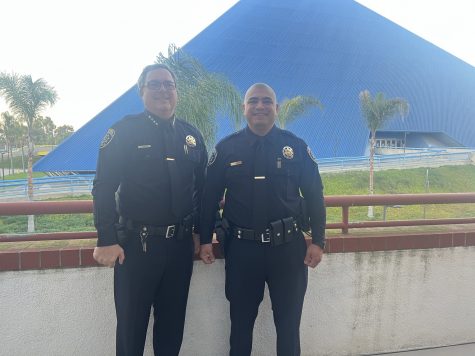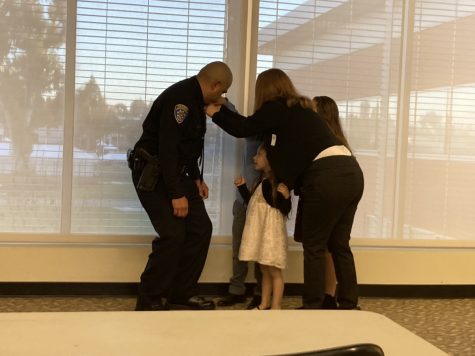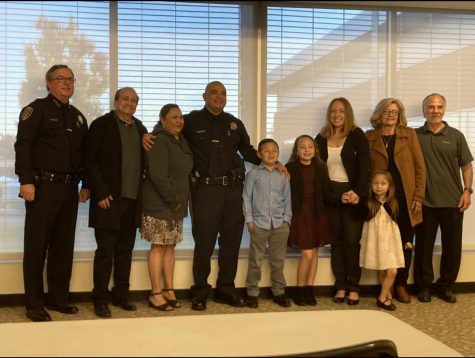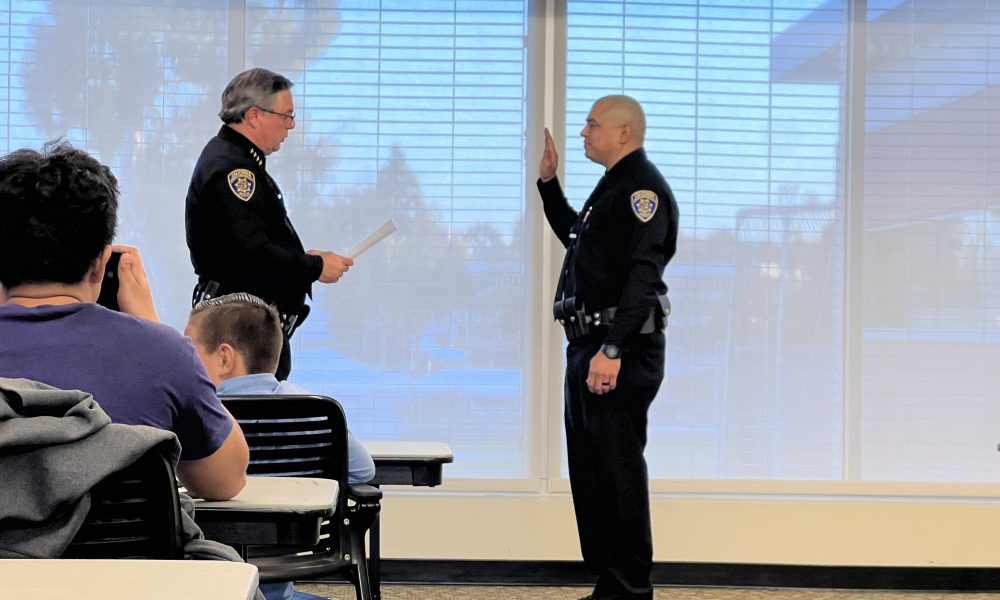Vazquez always knew he wanted to become a police officer, but there was not always a clear path ahead of him due to the obstacle that was his legal status.
Vazquez moved from Mexico to Long Beach, California with his family at 7-years-old. In 2002, a final order was issued by immigration for his deportation, followed by a search of his family’s North Long Beach home in 2007.

“On the list it was my mother, myself and a younger sibling,” Vazquez said. “Fortunately enough I wasn’t home at the time but it kept running through my mind you know and then it split up our family.”
After graduating from Woodrow Wilson High School, Vasquez knew he wanted to do something that would make his parents proud. He was the first college graduate in his family, earning an associate’s degree from Long Beach City College, but law enforcement remained on his mind.
Becoming a police officer began to look attainable in 2013 when he was approved for Deferred Action for Childhood Arrivals (DACA).
“We’re dreamers right, but it can be more than a dream now. I can make it a reality and for me that was when I was like, ‘I’m gonna go all in, I have the support system with my family, with my wife,’” Vazquez said.
By May 2017, he graduated with a bachelor’s of science degree in criminal justice from Cal State Dominguez Hills.
Vazquez said he enjoyed his time at CSUDH despite not having many financial resources for him as a student under DACA. Yet, he expressed gratitude for the opportunities he was able to receive.
“Once you understand that you’re undocumented and what it entails for your life, other challenges don’t seem as huge, at least in my experience through life,” Vazquez said.
In the years that followed, Vazquez endured an expensive process to become a citizen, leaving him and his family in debt.
“I felt like a weight lifted off my shoulders when I was approved,” Vazquez said. “Not just looking over my shoulders anymore, not being afraid of where I was going, if I wanted to visit my family, if I was putting them in danger by being somewhere.”
Vazquez became a police officer at 38-years-old and was sworn in by Chief John Brockie on Feb. 28, 2024.
“It has been a beautiful experience to see how he prepares himself to get ahead and combine his profession and his family,” Maria Teresa Vazquez, his mother, said in Spanish. After serving a 10-year bar in Mexico she legally returned to the U.S.
“He was always very positive about everything when things were tough. It was a long journey but it just helped us grow together stronger,” his wife, Malorie Vazquez, said.

Vazquez now encourages students under DACA to take advantage of the resources CSULB provides and to speak with people who have experienced the process, because it can help them prepare for their futures.
“I think it’s important for people to hear and kind of understand what the whole process is and how it affects your community and how it affects everyone really,” Vazquez said. “I feel like this campus really focuses a lot on diversity and I am a sample of that community.”

In September 2022, California became the first state to sign into law a change to the citizenship requirement for peace officers. Undocumented immigrants who are legally authorized to work in the U.S. now have the ability to become police officers.
“It’s a great opportunity that I think all DACA recipients should be taking,” Vazquez said.
Vazquez hopes to continue serving the community as a police officer and share his journey with others.
“It is a pride for us too, that he is making his dream come true,” his father Jose Vazquez said in Spanish.
This article was edited on March 25, 2024 for accuracy.




